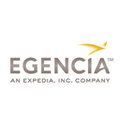Business Travel: Egencia Releases Global Cost Avoidance Study
Global Study Examines Corporate Travel Trends and Best Practices, Uncovering Hidden "Tricks of the Trade" for Avoiding Costs in 2011 Corporate Travel
Egencia(R), an Expedia, Inc. company, today released the results of its "2011 Global Cost Avoidance Study," uncovering several best practices and strategies that travel managers can use to circumvent and protect against growing corporate travel costs related to air and hotel.
"In today's challenging environment, we see the need more than ever to provide companies with expertise and guidance to optimize and monitor travel spend," said Christophe Pingard, Senior Vice President, Egencia EMEA and APAC. "This was the impetus for our global research and recent innovations such as our proprietary Air Fare Benchmarking and Flexible Dates Search tools."
The global survey of 348 travel executives revealed that 95 percent of respondents view travellers compliance as important to extremely important to the success of their travel programme in 2011. A lack of compliance can mean missed opportunities for corporations to preserve funds, and can ultimately affect the bottom line. For example, respondents identified failure to book air travel far enough in advance (68 percent) as the number one area where travellers tend not to comply. Respondents identified other areas of frequently breached compliance, including:
- Not booking preferred carriers or lowest logical fares (42 percent)
- Booking more expensive hotel rooms (32 percent)
- Not booking hotel rooms with preferred hotel partners (30 percent)
To encourage compliance with their travellers, 50 percent of respondents proactively communicate their corporate travel policy as updates occur; however, 16 percent communicate quarterly, 11 percent communicate yearly, and four percent never communicate. Additionally, 77 percent of respondents noted that they do not use incentives to keep their travellers compliant with their corporate travel policy.
According to a recent joint Egencia/NBTA Foundation study[1], a carefully conceived and consistently enforced corporate travel policy allowed companies to reduce annual travel spend by at least 45 percent or more.
When respondents were asked how they promoted travel spend accountability within their company, 56 percent noted that they establish a pre-trip approval system for approving or denying travel before booking, while 37 percent identify rogue travellers and follow-up with them directly, and 36 percent provide department managers with a specific travel budget that they manage and own.
In addition to strong policy enforcement and compliance, corporations should actively utilise cost avoidance tactics and best practices to ensure a successful travel programme. Respondents identified "insisting that travellers use lowest logical fares" as the most effective cost avoidance tactic, with 55 percent saying that it is effective to very effective. Respondents also identified requiring pre-trip approval (51 percent), using hotels that offer discounted/included amenities (47 percent), using independent hotels (25 percent), and utilising a last room availability clause (17 percent) as tactics used to avoid costs.
Corporate travel executives are increasingly focused on negotiating additional amenities or better terms and conditions into their hotel contracts, with 49 percent of respondents saying that they are utilising this tactic to combat anticipated hotel rate increases in the coming year.
"A key strategy of policy and cost control is to proactively identify new air and hotel opportunities, helping to maximise savings," said Jonny Shingles, Managing Director, Egencia UK. "For example, our Account Management works directly with our clients to expand and leverage specific discounts such as the Egencia Preferred Rate programme which includes amenities (breakfast, wi-fi) with major hotel partners .Within this programme, we also offer flexibility by negotiating specific terms such as "same day cancellation", thus helping companies avoid additional costs while maintaining the satisfaction and comfort of their travellers."
Respondents focused most prominently on negotiating free breakfast (56 percent) into their hotel contracts, followed by free Wi-Fi (55 percent), free parking (39 percent), last day cancellation (36 percent), and last room availability (24 percent).
The majority of respondents (57 percent) noted that they do not include reminders in their travel policy communications about available hotel benefits or amenities that have been negotiated into their rates. This is a substantial missed opportunity, as educating travellers on the availability of these benefits through targeted communications can dramatically increase the likelihood of them utilising these rates and included benefits.
Further insights into Egencia's 2011 Global Cost Avoidance Study are available upon request, as well as European specific figures.
About Egencia, an Expedia, Inc. Company | Egencia is the fifth largest travel management company in the world. As part of Expedia, Inc., (NASDAQ: EXPE), the world's largest travel marketplace, Egencia helps businesses get ahead by offering the only truly integrated corporate travel service. Egencia's industry expertise helps drive results that matter, delivering meaningful advancements that have a real impact. By combining a powerful offline and online service, Egencia delivers a complete corporate travel offering supported by global market expertise and a best-in-class technology platform. For more information, go to
Egencia and the Egencia logo are either registered trademarks or trademarks of Expedia, Inc. in the U.S. and/or other countries. Other logos or product and company names mentioned herein may be the property of their respective owners.(c) 2011 Egencia, LLC. All rights reserved. CST # 2083922-50
1 Corporate Travel Policy: Benchmarking and Insight, Egencia and National Business Travellers Association (NBTA) Foundation, August 2010.
Raphaëlle Boissicat
Corporate Communications Manager
+33-1-73-01-01-47
Egencia, LLC
